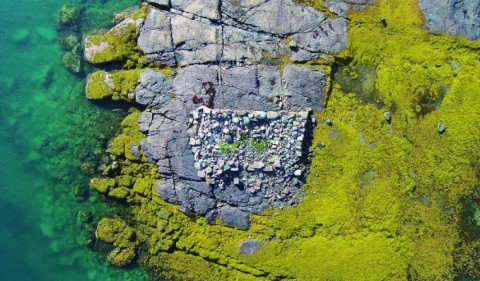
GCED Basic Search Form
Quick Search
You are here
News

8 November 2023
The UNESCO World Heritage Centre and the three Advisory Bodies – ICCROM, ICOMOS and IUCN – are developing their first joint toolkit on climate action for World Heritage. Developed with initial funding from the Australian Government, the toolkit will support States Parties and site managers to integrate climate change in the management strategies of UNESCO World Heritage sites. A call for case studies to help build the toolkit is open until end of 2023.
In the last decade, climate change has become the fastest growing threat to UNESCO World Heritage sites, undermining their protection and affecting people that depend on these sites for their wellbeing. One third of natural World Heritage sites and one in six cultural sites are estimated to already experience the impacts of climate change, such as increasingly severe weather events.
To help World Heritage sites overcome these challenges, the UNESCO World Heritage Centre and the three advisory bodies – the International Centre for the Study of the Preservation and Restoration of Cultural Property (ICCROM), the International Council on Monuments and Sites (ICOMOS), and the International Union for Conservation of Nature (IUCN) – are developing a new guidance and toolkit.
Through its contribution to the World Heritage Leadership programme, the Australian Government has generously committed 510,000 AUD to support the first phase of the project.
A research team is currently undertaking a baseline assessment of existing tools and guidance, followed by a series of consultation workshops to draft the new resource. The toolkit will be tested in a diversity of cultural, natural and mixed UNESCO World Heritage sites in partnership with management authorities having to deal with climate change and disaster risk at the site level. Once complete, it will be published under the series of Resource Manuals on World Heritage.
The toolkit will feature case studies on key topics, such as climate adaptation, and include examples of solutions that World Heritage sites may provide to help tackle climate change, for example through local and indigenous knowledge linked with sites, ecosystem services such as carbon storage, or action to reduce carbon footprint of management operations.
Actors and sites interested to share their experiences and case studies on actions to address climate change in UNESCO World Heritage sites are invited to contact the World Heritage Centre at wh-nature@unesco.org, by the end of December 2023.
https://whc.unesco.org/en/news/2624
